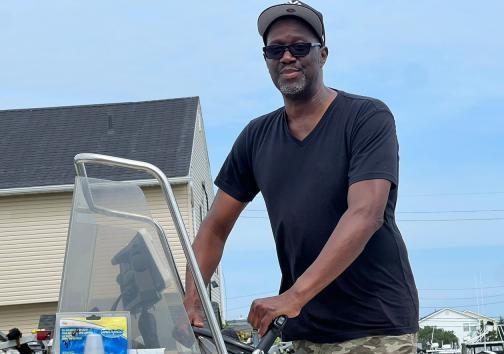Rita Jermyn, MD, Director of Catholic Health’s St. Francis Heart Center for Advanced Cardiac Therapeutics, answers commonly asked questions about cardiac amyloidosis.
What is cardiac amyloidosis?
Cardiac amyloidosis is a heart condition that occurs when misshapen proteins replace normal heart muscle. The build-up of the protein causes heart failure. The condition can affect the heart’s electrical signals, which causes arrhythmia.
Cardiac amyloidosis symptoms typically surface when someone is in their 30s or 40s.
What are the different types of cardiac amyloidosis?
AL Amyloidosis
AL amyloidosis happens when bone marrow cells malfunction and make too many plasma cells, a type of white blood cell. AL amyloidosis can happen on its own. It can also occur because of certain blood or immune system cancers.
Transthyretin (ATTR) Amyloidosis
Transthyretin (TTR) is a protein that helps carry other proteins in the blood, such as thyroid hormone and vitamin A. TTR has four parts—a tetramer. ATTR amyloidosis occurs when the tetramer becomes unstable and breaks into single components. There are two sub-types:
- Hereditary. Inherited from one or both parents.
- Wild-type. The condition happens on its own—there is no genetic mutation.
AA Amyloidosis (secondary amyloid)
Deposits of the amyloid A protein typically occur because of an inflammatory condition.
How is cardiac amyloidosis diagnosed?
Your cardiologist may use one or more of the following to make a diagnosis.
- Physical examination
- Blood test
- Urine test
- Diagnostic imaging
- Echocardiogram (ultrasound)
- Electrocardiogram (EKG)
- Cardiac MRI
- Cardiac nuclear imaging
- Heart tissue biopsy
- Bone marrow biopsy
- Genetic testing
How is cardiac amyloidosis treated?
There is no cure for cardiac amyloidosis. You and your cardiologist will create a tailored treatment plan depending on your type of amyloidosis that includes:
- Medications to reduce protein buildup
- Symptom management
- Lifestyle modification
- Routine check-ups
When should I see a cardiologist?
Make an appointment with a cardiologist if you have a family history of cardiac amyloidosis.
Contact your doctor immediately if you are experiencing any of the following:
- Shortness of breath
- Dizziness or fainting when sitting or standing up
- Also called orthostatic hypotension, it is caused by low blood pressure
- Heart palpitations
- Irregular heart rhythm (too slow or too fast)
- Excessive tiredness
- Swelling in limbs or abdomen
- Sudden weight loss
Cardiac amyloidosis can also be associated with noncardiac symptoms, including:
- Carpal tunnel syndrome
- Gastrointestinal issues (poor appetite, diarrhea or constipation)
- Lumbar spinal stenosis
- Purple discoloration around eyelids
- Easy bruising or bleeding
- Enlarged tongue
Find Care at Catholic Health
The Cardiac Amyloidosis Program at St. Francis Hospital & Heart Center® (Roslyn, NY) diagnoses and treats patients with cardiac amyloidosis. Patients can access the most advanced cardiac imaging technology for correct diagnosis to begin treatment and manage symptoms.
Call 516-562-6426 to schedule an appointment.







